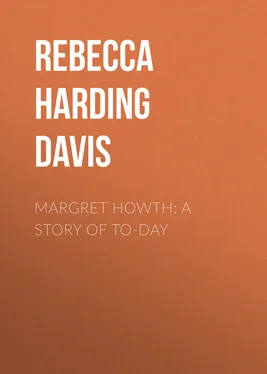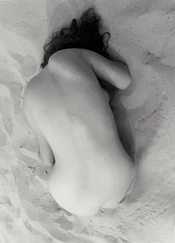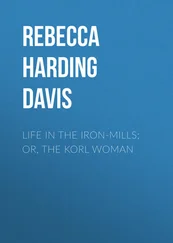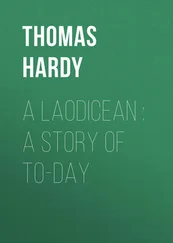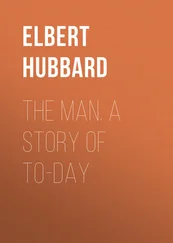Rebecca Harding Davis - Margret Howth - A Story of To-day
Здесь есть возможность читать онлайн «Rebecca Harding Davis - Margret Howth - A Story of To-day» — ознакомительный отрывок электронной книги совершенно бесплатно, а после прочтения отрывка купить полную версию. В некоторых случаях можно слушать аудио, скачать через торрент в формате fb2 и присутствует краткое содержание. Жанр: foreign_sf, foreign_antique, foreign_prose, на английском языке. Описание произведения, (предисловие) а так же отзывы посетителей доступны на портале библиотеки ЛибКат.
- Название:Margret Howth: A Story of To-day
- Автор:
- Жанр:
- Год:неизвестен
- ISBN:нет данных
- Рейтинг книги:3 / 5. Голосов: 1
-
Избранное:Добавить в избранное
- Отзывы:
-
Ваша оценка:
- 60
- 1
- 2
- 3
- 4
- 5
Margret Howth: A Story of To-day: краткое содержание, описание и аннотация
Предлагаем к чтению аннотацию, описание, краткое содержание или предисловие (зависит от того, что написал сам автор книги «Margret Howth: A Story of To-day»). Если вы не нашли необходимую информацию о книге — напишите в комментариях, мы постараемся отыскать её.
Margret Howth: A Story of To-day — читать онлайн ознакомительный отрывок
Ниже представлен текст книги, разбитый по страницам. Система сохранения места последней прочитанной страницы, позволяет с удобством читать онлайн бесплатно книгу «Margret Howth: A Story of To-day», без необходимости каждый раз заново искать на чём Вы остановились. Поставьте закладку, и сможете в любой момент перейти на страницу, на которой закончили чтение.
Интервал:
Закладка:
Rebecca Harding Davis
Margret Howth: A Story of To-day
CHAPTER I
Let me tell you a story of To-Day,—very homely and narrow in its scope and aim. Not of the To-Day whose significance in the history of humanity only those shall read who will live when you and I are dead. We can bear the pain in silence, if our hearts are strong enough, while the nations of the earth stand afar off. I have no word of this To-Day to speak. I write from the border of the battlefield, and I find in it no theme for shallow argument or flimsy rhymes. The shadow of death has fallen on us; it chills the very heaven. No child laughs in my face as I pass down the street. Men have forgotten to hope, forgotten to pray; only in the bitterness of endurance, they say "in the morning, 'Would God it were even!' and in the evening, 'Would God it were morning!'" Neither I nor you have the prophet's vision to see the age as its meaning stands written before God. Those who shall live when we are dead may tell their children, perhaps, how, out of anguish and darkness such as the world seldom has borne, the enduring morning evolved of the true world and the true man. It is not clear to us. Hands wet with a brother's blood for the Right, a slavery of intolerance, the hackneyed cant of men, or the blood-thirstiness of women, utter no prophecy to us of the great To-Morrow of content and right that holds the world. Yet the To-Morrow is there; if God lives, it is there. The voice of the meek Nazarene, which we have deafened down as ill-timed, unfit to teach the watchword of the hour, renews the quiet promise of its coming in simple, humble things. Let us go down and look for it. There is no need that we should feebly vaunt and madden ourselves over our self-seen rights, whatever they may be, forgetting what broken shadows they are of eternal truths in that calm where He sits and with His quiet hand controls us.
Patriotism and Chivalry are powers in the tranquil, unlimited lives to come, as well as here, I know; but there are less partial truths, higher hierarchies who serve the God-man, that do not speak to us in bayonets and victories,—Mercy and Love. Let us not quite neglect them, unpopular angels though they be. Very humble their voices are, just now: yet not altogether dead, I think. Why, the very low glow of the fire upon the hearth tells me something of recompense coming in the hereafter,—Christmas-days, and heartsome warmth; in these bare hills trampled down by armed men, the yellow clay is quick with pulsing fibres, hints of the great heart of life and love throbbing within; slanted sunlight would show me, in these sullen smoke-clouds from the camp, walls of amethyst and jasper, outer ramparts of the Promised Land. Do not call us traitors, then, who choose to be cool and silent through the fever of the hour,—who choose to search in common things for auguries of the hopeful, helpful calm to come, finding even in these poor sweet-peas, thrusting their tendrils through the brown mould; a deeper, more healthful lesson for the eye and soul than warring truths. Do not call me a traitor, if I dare weakly to hint that there are yet other characters besides that of Patriot in which a man may appear creditably in the great masquerade, and not blush when it is over; or if I tell you a story of To-Day, in which there shall be no bloody glare,—only those homelier, subtiler lights which we have overlooked. If it prove to you that the sun of old times still shines, and the God of old times still lives, is not that enough?
My story is very crude and homely, as I said,—only a rough sketch of one or two of those people whom you see every day, and call "dregs," sometimes,—a dull, plain bit of prose, such as you might pick for yourself out of any of these warehouses or back-streets. I expect you to call it stale and plebeian, for I know the glimpses of life it pleases you best to find; idyls delicately tinted; passion-veined hearts, cut bare for curious eyes; prophetic utterances, concrete and clear; or some word of pathos or fun from the old friends who have endenizened themselves in everybody's home. You want something, in fact, to lift you out of this crowded, tobacco-stained commonplace, to kindle and chafe and glow in you. I want you to dig into this commonplace, this vulgar American life, and see what is in it. Sometimes I think it has a new and awful significance that we do not see.
Your ears are openest to the war-trumpet now. Ha! that is spirit-stirring!—that wakes up the old Revolutionary blood! Your manlier nature had been smothered under drudgery, the poor daily necessity for bread and butter. I want you to go down into this common, every-day drudgery, and consider if there might not be in it also a great warfare. Not a serfish war; not altogether ignoble, though even its only end may appear to be your daily food. A great warfare, I think, with a history as old as the world, and not without its pathos. It has its slain. Men and women, lean-jawed, crippled in the slow, silent battle, are in your alleys, sit beside you at your table; its martyrs sleep under every green hill-side.
You must fight in it; money will buy you no discharge from that war. There is room in it, believe me, whether your post be on a judge's bench, or over a wash-tub, for heroism, for knightly honour, for purer triumph than his who falls foremost in the breach. Your enemy, Self, goes with you from the cradle to the coffin; it is a hand-to-hand struggle all the sad, slow way, fought in solitude,—a battle that began with the first heart-beat, and whose victory will come only when the drops ooze out, and sudden halt in the veins,—a victory, if you can gain it, that will drift you not a little way upon the coasts of the wider, stronger range of being, beyond death.
Let me roughly outline for you one or two lives that I have known, and how they conquered or were worsted in the fight. Very common lives, I know,—such as are swarming in yonder market-place; yet I dare to call them voices of God,—all!
My reason for choosing this story to tell you is simple enough.
An old book, which I happened to find to-day, recalled it. It was a ledger, iron-bound, with the name of the firm on the outside,—Knowles & Co. You may have heard of the firm: they were large woollen manufacturers: supplied the home market in Indiana for several years. This ledger, you see by the writing, has been kept by a woman. That is not unusual in Western trading towns, especially in factories where the operatives are chiefly women. In such establishments, they can fill every post successfully, but that of overseer: they are too hard with the hands for that.
The writing here is curious: concise, square, not flowing,—very legible, however, exactly suited to its purpose. People who profess to read character in chirography would decipher but little from these cramped, quiet lines. Only this, probably: that the woman, whoever she was, had not the usual fancy of her sex for dramatizing her soul in her writing, her dress, her face,—kept it locked up instead, intact; that her words and looks, like her writing, were most likely simple, mere absorbents by which she drew what she needed of the outer world to her, not flaunting helps to fling herself, or the tragedy or comedy that lay within, before careless passers-by. The first page has the date, in red letters, October 2, 1860, largely and clearly written. I am sure the woman's hand trembled a little when she took up the pen; but there is no sign of it here; for it was a new, desperate adventure to her, and she was young, with no faith in herself. She did not look desperate, at all,—a quiet, dark girl, coarsely dressed in brown.
There was not much light in the office where she sat; for the factory was in one of the close by-streets of the town, and the office they gave her was only a small square closet in the seventh story.
Читать дальшеИнтервал:
Закладка:
Похожие книги на «Margret Howth: A Story of To-day»
Представляем Вашему вниманию похожие книги на «Margret Howth: A Story of To-day» списком для выбора. Мы отобрали схожую по названию и смыслу литературу в надежде предоставить читателям больше вариантов отыскать новые, интересные, ещё непрочитанные произведения.
Обсуждение, отзывы о книге «Margret Howth: A Story of To-day» и просто собственные мнения читателей. Оставьте ваши комментарии, напишите, что Вы думаете о произведении, его смысле или главных героях. Укажите что конкретно понравилось, а что нет, и почему Вы так считаете.
